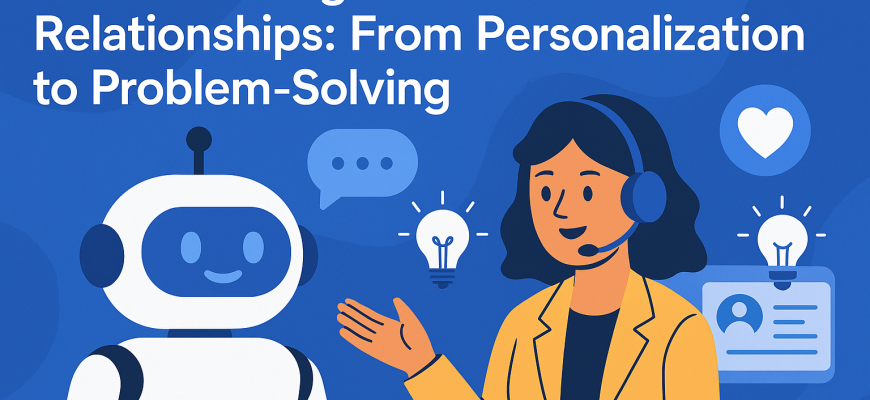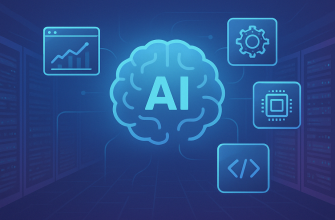Harnessing AI for Customer Relationships: From Personalization to Problem-Solving
In today’s digital landscape, artificial intelligence (AI) has transformed the way businesses interact with their customers. From personalized experiences to efficient problem-solving, AI-powered tools are redefining customer relationships. Companies that embrace AI can not only enhance customer satisfaction but also drive loyalty and long-term engagement.
The Power of Personalization
Personalization has become a key expectation for consumers, and AI plays a crucial role in delivering tailored experiences. By analyzing customer data, AI can predict preferences, recommend products, and create dynamic content that resonates with individual users. Chatbots and virtual assistants powered by AI can offer real-time responses, ensuring seamless and relevant interactions.
For example, e-commerce platforms use AI-driven recommendation engines to suggest products based on browsing history and previous purchases. Streaming services leverage AI to curate content suggestions, making the user experience more engaging and enjoyable. These personalized touchpoints enhance customer satisfaction and encourage repeat business.
Enhancing Customer Support With AI
AI-driven solutions are revolutionizing customer support by providing faster, more accurate responses. Chatbots, natural language processing (NLP), and machine learning algorithms enable businesses to automate routine queries, reducing wait times and improving service efficiency.
AI can analyze customer sentiment in real-time, allowing companies to identify and address concerns proactively. Automated ticketing systems prioritize issues based on urgency, ensuring that critical problems receive immediate attention. By integrating AI into customer service operations, businesses can enhance response times, reduce costs, and improve overall customer experiences.
Data-Driven Insights for Better Engagement
One of AI’s biggest advantages is its ability to analyze vast amounts of data and generate actionable insights. By examining customer behavior, businesses can identify patterns, predict future trends, and optimize their marketing strategies. AI-powered analytics provide valuable insights into customer preferences, enabling companies to refine their messaging and improve engagement.
Additionally, AI can segment audiences based on demographics, interests, and purchase history, allowing brands to create highly targeted campaigns. Predictive analytics help businesses anticipate customer needs, fostering proactive engagement and personalized marketing efforts.
AI and Problem-Solving: Anticipating Customer Needs
AI is not just about personalization—it is also a powerful tool for problem-solving. By leveraging AI-driven automation, businesses can streamline operations and resolve customer issues efficiently. Predictive maintenance in industries like manufacturing and telecommunications helps prevent technical failures before they occur, minimizing downtime and enhancing customer satisfaction.
AI can also detect fraudulent activities and security threats, ensuring a safe and trustworthy customer experience. Financial institutions use AI to identify suspicious transactions and protect customers from fraud, reinforcing trust in digital banking services.
Building Stronger Customer Relationships With AI
To master customer relationships, businesses must integrate AI in a way that enhances—not replaces—human interactions. While AI improves efficiency, a human touch remains essential for complex problem-solving and emotional intelligence. The key to success lies in finding the right balance between automation and personalized engagement.
By leveraging AI for personalization, customer support, data-driven insights, and problem-solving, businesses can create meaningful and lasting customer relationships. As AI continues to evolve, companies that embrace its potential will gain a competitive edge, fostering loyalty and long-term success in the digital era.









